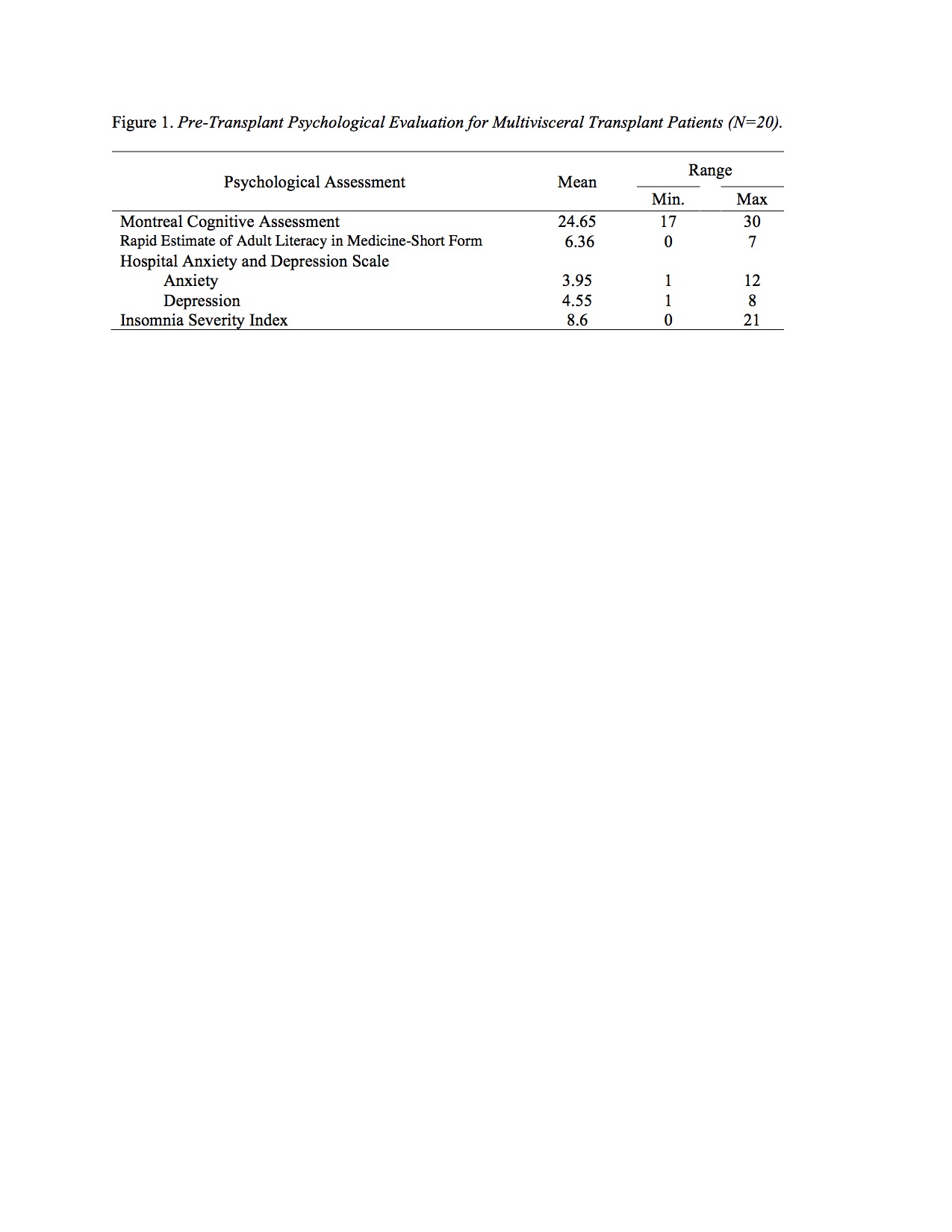Introduction: As intestinal transplant becomes a more viable treatment option, there has been increased interest in quality of life and other psychosocial metrics. Systematic review suggests that quality of life improves post-transplant. However, there is limited data regarding psychosocial issues present at initial evaluation and post-transplant. Given that psychiatric issues are associated with increased mortality in solid organ transplant, this study aims to highlight psychosocial patterns that are present at initial evaluation and post-transplant.
Methods: This study was a retrospective chart review of 28 patients who received intestinal transplants between 8/3/10-1/3/17 at an academic hospital in the United States. Psychosocial variables from encounters with health psychology senior staff and trainees were extracted. Descriptive data were evaluated from pre and post-transplant encounters.
Results: Pre-transplant, the most common initial diagnosis was adjustment disorder (68%) with more significant pathology occurring in the remaining patients. 3/28 patients had comorbid substance use issues. 12/28 patients were on psychotropic medications during initial evaluation with 50% of those on multiple medications. Figure 1 describes data from initial psychological assessment. Of those eventually transplanted, 8 required further intervention prior to psychosocial clearance.

Among the 28 patients, psychology was consulted an average of 2.71 times. Of those that required follow-up, there was an average of 8.25 follow-ups. Most common reasons for consult were; depression, pain, anxiety, eating related issues, mental status concerns, or other. Of the 28 patients, 19 had post-transplant psychiatric diagnoses. Although adjustment disorders were the most prevalent (8/19), more significant pathology was found in remaining patients including opioid abuse (4/19), PTSD (3/19), and pain disorders (3/19).
Conclusion: Present analysis suggests that many pre-transplant patients have significant psychopathology. Post-transplant a number of psychosocial issues persist and can emerge on an inpatient and outpatient basis. Development of behavioral health protocols for the most common consultations will be a valuable clinical service. These interventions may improve psychosocial outcomes, decrease patient noncompliance and reduce disease burden and cost. Future prospective studies, extending period of follow up, and assessing a wider range of predictors and outcomes are needed.
.jpg )